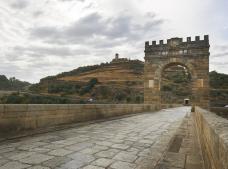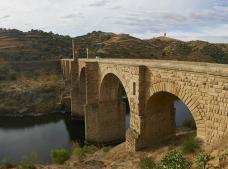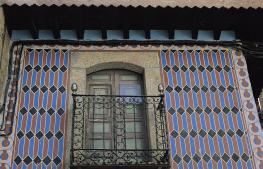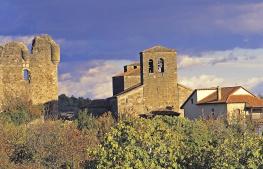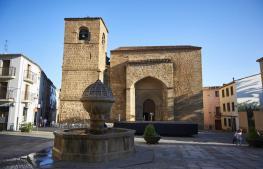Roman bridge of Alcántara
The bridge that will remain standing for centuries
The Roman bridge in Alcántara was built between the years AD 104 and 106, and in 1924 was declared an Asset of Cultural Interest in the Monument category.
It stands out in particular for its grandness and strength that it still maintains today, nearly intact despite being almost 2,000 years old. Standing at 58.2 metres tall and 194 metres long, it is a beautiful construction, somewhere between art and engineering.
The bridge’s strategic location made it a strategic spot over the centuries, bridging the course of the Tagus River and forming part of one of the routes joining Spain and Portugal.
This large monument occupies a prominent position out of all of Ancient Rome’s engineering works. It was constructed with the aim of facilitating communication between Norba Caesarina (present-day Cáceres) and Conimbriga (present-day Condeixa-a-Velha in Portugal) and is considered a masterpiece where advanced engineering techniques were used to erect six rounded arches supported by five thick pillars. The bridge was built using rectangular ashlars arranged in alternating courses of headers and stretchers.
A 14-metre tall honorary arch stands at the middle of the bridge. This arch, known as the Triumphal Arch, has plaques with information about the work, describing the dedication of the bridge to the Emperor Trajan and the names of the municipalities that funded it. The dedicatory inscription states: ‘The Emperor Caesar, son of divine Nerva, the German, Trajan, who was made three times Highest Priest, given eight times the Tribune power, and given five times the government; Father of the country’.
On the entrance to the bridge there is a small temple with a rectangular floor plan and an inscription that mentions the architect: ‘The bridge will remain constant in the world forever, made by Lacer, famous for his divine art’. It did not lie, since the bridge still stands elegant and strong, with the expectation that its eternal story will continue.
The town of Alcántara sprung up years later. The bridge was also key in later times for the Military Order of Alcántara in defending the town, which stands on the Portuguese border.
Weather
Alcántara
17Dec

7 ºC
16 ºC
18Dec

5 ºC
15 ºC
19Dec

8 ºC
11 ºC
20Dec

7 ºC
13 ºC
21Dec

5 ºC
10 ºC
22Dec

2 ºC
10 ºC
If you like Roman bridge of Alcántara you will like this too...
Villanueva de La Vera Historical Site
This is one of the most easterly towns in the county of La Vera, and was declared a Historical Site in 1982.
Valverde de La Vera Historical Site
Valverde de La Vera is a village located in the county of La Vera.
Brozas Historical Site
The town of
Plasencia Historical Site
Plasencia is a city located in the north of the province of Cáceres.
More things you can find in Tajo Salor Almonte
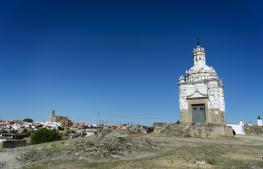
Brozas Historical Site
The town of

